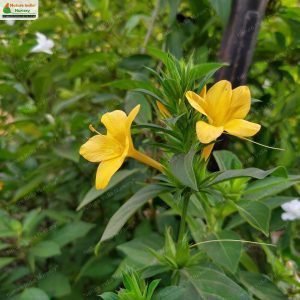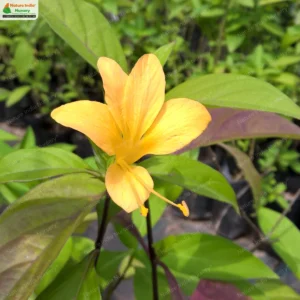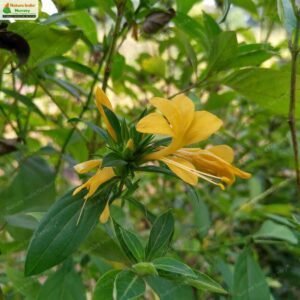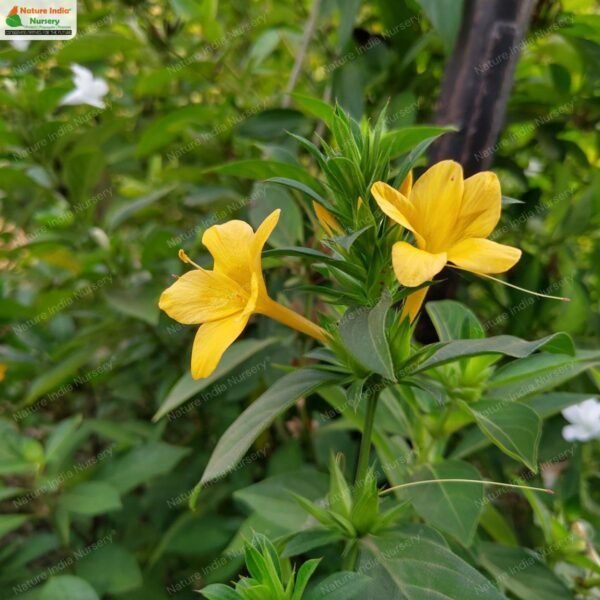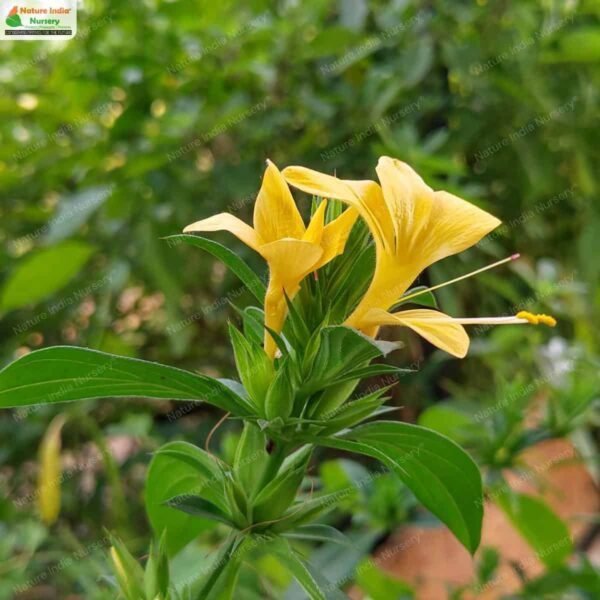Barleria prionitis, commonly known as Porcupine Flower or Vajradanti, is a notable plant recognized for its bright yellow flowers and traditional medicinal uses. This perennial herb is native to the tropical regions of Asia and Africa and is often found in gardens and landscapes due to its attractive flowers and low maintenance requirements.
Porcupine Flower grows as a small, erect shrub, reaching up to 1 meter in height. Its stems are covered with sharp spines, which is a distinguishing feature. The leaves are simple, opposite, and lanceolate, with a glossy green surface. The flowers are bright yellow and funnel-shaped, blooming profusely during the late summer and early autumn.
Habitat
Porcupine Flower thrives in warm, tropical climates. It prefers well-drained soils and can be found in open forests, grasslands, and along roadsides. It tolerates a variety of soil types but grows best in fertile, moist conditions with good drainage.
Planting and Care
- Light: Full sun to partial shade
- Soil: Well-draining, fertile soil
- Watering: Water regularly during the growing season, ensuring the soil remains moist but not waterlogged
- Maintenance: Prune lightly to maintain shape and encourage new growth. Apply a balanced fertilizer during the growing season to promote blooming.
Additional Information
- This plant attracts pollinators such as bees and butterflies, enhancing garden biodiversity.
- Propagation can be done through seeds or cuttings.
- Porcupine Flower has traditional medicinal uses, particularly in Ayurveda, where it is used to treat various ailments such as respiratory issues, arthritis, and skin diseases.
- The bright yellow flowers and easy maintenance make it a popular choice for ornamental gardens and landscape designs.
Please note: Handle with care due to the sharp spines on the stems. Ensure good drainage to prevent root rot and other water-related issues.

